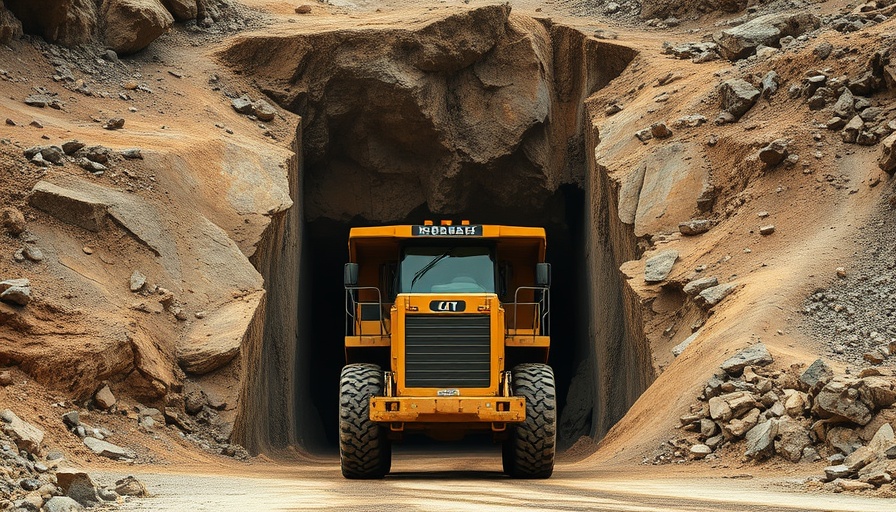
McEwen Mining's Stock Mine: A New Era for Timmins
On June 5, 2025, McEwen Mining celebrated a significant milestone by commencing construction of the Stock Mine in Timmins, Ontario. This new project is not merely an increase in production; it signals a transformative phase for the local mining industry amidst soaring gold prices.
The Timing is Right for Gold
Rob McEwen, the company’s owner and CEO, emphasized that the timing for this venture could not be better, especially as global gold prices remain at record highs. This strategic move is set to enhance not only McEwen Mining's output but also Timmins' economic landscape as a critical player in the gold market.
What to Expect from the Stock Mine
The Stock Mine is poised to produce gold by the latter half of 2025 from three well-defined zones: West, Main, and East. These areas are part of a broader trend along the Destor-Porcupine Fault, an influential geological structure known for its mineral-rich deposits. It is estimated that the Stock Mine has about 281,000 ounces of indicated gold and 181,000 ounces inferred, making it a crucial asset for future mining initiatives.
Reduced Production Costs and Environmental Impact
A significant advantage for the Stock Mine is its proximity to the existing Stock mill, which will drastically reduce transportation costs by eliminating the need to haul ore from 35 kilometers away, as was the case with the Froome Mine. This change also aligns with the growing emphasis on sustainable mining practices, allowing for more efficient resource management and reduced environmental impact.
Economic Benefits for Local Communities
The construction of the Stock Mine is expected to create numerous jobs, thus revitalizing employment opportunities in Timmins. As the mining sector regains momentum, ancillary businesses and services are anticipated to flourish, fostering a robust local economy that benefits from increased spending and investment within the region.
Future of Gold Mining in Timmins
As McEwen Mining shifts its focus from the Froome Mine to the Stock Mine, the opportunities for exploration and expansion are promising. The new mine will enable the company to extend its operations through underground drilling, which could lead to discovering farther gold extensions beyond the current zones.
A New Chapter in the Timmins Mining Legacy
Timmins has a rich mining history, and the Stock Mine represents a pivotal development in continuing that legacy. Rob McEwen's enthusiasm reflects the industry sentiment—gold mining remains a viable economic driver, particularly as geopolitical tensions elevate the demand for gold as a safe-haven asset.
Engaging the Community
For residents and investors alike, understanding the potential economic shifts brought about by the Stock Mine can foster a sense of community and commitment to the future of Timmins. Participation in discussions about mining's future can also provide insights into how best to support local initiatives and leverage new opportunities.
As news spreads about McEwen Mining’s new project, stakeholders will want to engage in dialogues regarding job creation and environmental stewardship, ensuring that this vibrant chapter in Timmins’s history is both sustainable and prosperous.
 Add Row
Add Row  Add
Add 




Write A Comment